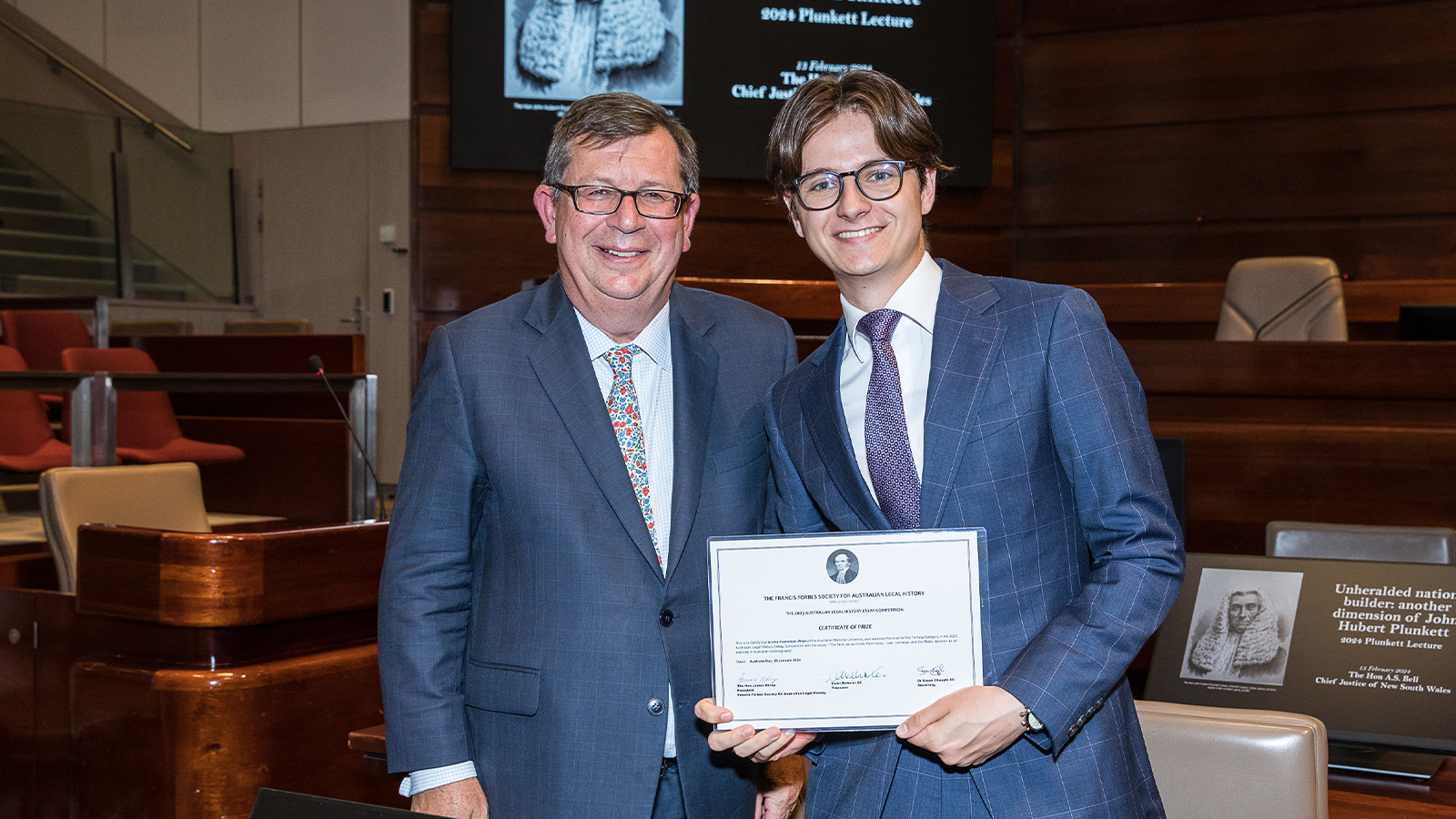ANU Arts-Law student Archie Horneman-Wren wins national 2023 Australian Legal History Essay Competition

Photo provided by Francis Forbes Society.
Left to right: Hon. Andrew Bell, Chief Justice of NSW, Archie Horneman-Wren.
'The Mabo decision proved that Australian law and history are mutually inclusive. If it were not for history’s proper understanding of Australian settlement, Mabo would never have overturned terra nullius. And, if it were not for Mabo, neither legal nor historical scholarship would have possessed the requisite authority to speak about Australian nationhood with a new direction. Mabo gave both disciplines the narrative foundations necessary to conceive of our future on new (or ancient) grounds, from which Indigenous peoples had never disconnected.’
- Argument, from conclusion of Archie Horneman-Wren’s winning essay.
ANU Arts-Law student Archie Horneman-Wren has won the Francis Forbes Society's 2023 Australian Legal History Essay Competition. The prize was presented as part of the Society’s 12th Annual Plunkett Lecture, chaired by the Hon. James Allsop AC, President of the Forbes Society and former Chief Justice of the Federal Court of Australia. The award was presented by the Hon. Andrew Bell, Chief Justice of NSW, at the Banco Court in the Law Courts Building, Sydney.
Archie won in the Tertiary category, an award offered annually by the Society to ‘recognise excellence in the study of Australian legal history’ for his winning essay, titled, “'The Facts as We Know Them Today': Law, Narrative, and the Mabo Decision as an Exercise in Australian Historiography’”. The judges noted that it rose to the top in an especially strong round of entries. He received a certificate and took home $1,000 in prize money.
“Something about Mabo changed how we think about ourselves as Australians. Suddenly and powerfully, an indisputable fact of Australia’s past was authorised by our legal system. Understanding the nation is a huge passion of mine. So, I wanted to investigate that question: how does law determine who we are?” he explains.
Archie’s essay, which draws from both his legal and historical studies, began as his major project for Making History (HIST3007), the capstone course for a History Major, which requires students to write an original essay using primary sources on a topic of their choosing.
“This essay was a chance to do something I never expected to achieve in my Arts/Law double degree: to make it truly interdisciplinary. The seeds of the argument came from my earliest readings in first and second year Law. But I was frustrated that lawyers didn’t seem to understand history, just as historians underappreciated the power of law within society. I saw Professor Thomas’ course as a unique opportunity to combine the disciplines,” Archie comments.
Honoured to receive the accolade, Archie says, “All I’ve written over the last three years has been for myself and my Lecturers, but I always felt I had ideas to contribute to History in unique ways, and to Law in more meaningful ways. To share this essay with the Francis Forbes Society was exciting enough — to have received such recognition will encourage me for years to come.”
Professor Martin Thomas, who taught Archie in Making History, described the essay as, “a penetrating meditation on history, the law, and the nexus between the two.”